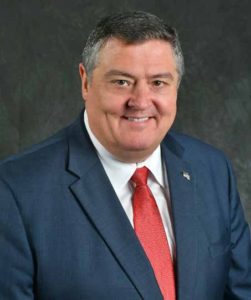National accounts award winner says clear communication not only leads to trust, but successful contracts
Supply chain executives know how difficult it can be to gain consensus among their many constituents around a contract. But think about the task of the national accounts director, that is, the person or team on the seller side.
“Each GPO is unique in what they are offering to their membership,” says Les Friend, executive director, Enterprise Team, for KARL STORZ Endoscopy-America. “Likewise, IDNs or enterprise health systems have varying needs based on their GPO relationships. The value of the relationship must be based on aligned business goals and objectives, and these do not always focus on price.
“The for-profits, critical-access facilities, academic medical centers, children’s hospitals, not-for-profit health systems, along with the Veterans Health Administration (Veterans Health) and Department of Defense (DOD) Healthcare, all have very specific criteria that they define and adhere to.”
It’s a challenge, but one that Friend embraces. For his efforts, he recently received the first National Account Executive Lifetime Achievement Award from the Association of National Account Executives (ANAE).
Friend’s professional roots lie on the provider side.
The nuclear option
He got a degree in nuclear medicine from Triton College in River Grove, IL, a western suburb of Chicago. He served as a nuclear medicine technologist at Loyola University Medical Center for seven years after that.
“I was intrigued with healthcare and science,” he says. “Radiology was interesting, but the ability to make radioactive materials, administer to patients and to safely be able to image the functioning and structure of the human body, hit everything that I was interested in. Being at Loyola University, doing some of the most cutting edge procedures and having the ability to do research and advanced image processing techniques, was a hit.”
At Loyola, Friend found himself assisting many of the institution’s suppliers with site visits and, at times, aiding in the testing of new technologies. Siemens offered him a position to join its sales team as a nuclear product specialist supporting computer sales, positron emission tomography scanners and medical cyclotrons. In that role, he marketed and sold diagnostic imaging products to acute care facilities, outpatient diagnostic imaging centers, mobile imaging services, Veterans Health and DOD facilities. Ultimately, he was named regional vice president of health services sales in the Southeast.
In 2011, he moved from the Midwest to California to lead the corporate accounts team of Toshiba America Medical Systems. “I looked forward to getting back into the strategic role of corporate accounts and the impact it can have on a business,” he says. “The experience was rewarding, and having worked for one technology-focused healthcare company, to now working for another, made for an exciting challenge to build on past successes and expand on new ideas.”
In 2015, he joined KARL STORZ Endoscopy-America Inc. as executive director for national accounts.
On the same wavelength
Contracts work only if the buyer and seller agree on the customer’s short- and long-term goals and needs, along with the criteria that both will use to hold each other accountable, says Friend. Contracts fail to work if either party refuses or is unable to adapt to newly agreed upon objectives and/or behaviors.
“Not having routine business reviews, which help assess each other’s performance, and not bringing new ideas or opportunities to further improve the business relationship can jeopardize the contract,” he says. “The inability to trust each other and the teams on both sides can be a source of challenge. As health systems continue to grow in size and complexity, then so must the performance of strategically aligned suppliers to the health system.” So too must the quality and frequency of communication between both parties.
“The health system has many teams and at times, many locations that will use the solutions that have been contracted for,” says Friend. “This can be in the hospital, offices and home health, amongst other areas. Likewise, the supplier may have account managers and field service personnel covering one facility, and this expands as you go to the enterprise level.
“So a clear communication must be delivered by both sides of the contract, and routine communication must continue in order to maintain everyone’s expectations. The governance of a strategic aligned relationship must be the capstone for the agreement’s success and not its failure.”
Friend and his wife, Pam, live in Signal Hill, CA. Their daughter is a classically educated vocal artist, and their son is a cryptologist and chief petty officer in the U.S. Navy.

